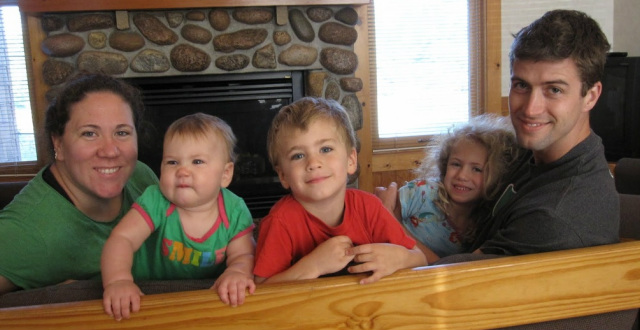|
The following reflects the philosophy of family we are using at my church. We are attempting to do less "programming," and instead pour our energy into resourcing parents and families. Sunday School moves from class once a week to life every day. Of course there are always spiritual "orphans" who have parents who are either not believers, or not faithful. And of course, the church finds a place for them in the family as well. Family as Little Church Pastor Jeff Cloeter Our vision is for every family to be a “little church.” The family is the God-ordained place for faith formation. Raising children is a God-given, parental responsibility. It must not be abdicated to a Christian Day School, VBS, Sunday School, or pastor. Your local congregation walks with you as you raise your children in the Lord. By God’s grace, we seek to raise godly young men and women who love God, love others, and impact the world. The theme of family is evident throughout Scripture (think Adam and Eve, Abraham and Sara, the patriarchs, and the family genealogy leading all the way to Jesus, etc.). The first three commandments deal with our relationship with God. The first one that deals with our relationship to others is the fourth, which puts us under the authority of our parents. This was fundamental to Martin Luther’s Small Catechism, written as a resource for families. He prefaces the six chief parts with: “As the head of the family should teach them in a simple way to his household.”
Christians have historically practiced their faith around four practices. From early on, children should also be engaged in these core practices of the Christian faith in age appropriate ways. Below are the four practices and some ways they can be incorporated in your family. These suggestions are particularly geared for young children, but may be translated for children of all ages. Worship: - Worship together. Kids will not know how to participate in a worship service if they do not do it with you. Teach them to listen, sing, stand, pray, and be silent. Point out tangible expressions of our faith and what they mean: candles, altar, font, communion, etc. At times, they will need to “step out,” but keep them in the service as much as possible. - Family worship in the home can take place in the form of family devotions. Establish this as a regular habit. It does not have to be long: 5-10 minutes. Include a good children’s Bible, prayer, and song. We have devotional resources for you. - See our accompanying resources. Including the gospel as Manger, Cross, and Crown. Prayer: - The Lord’s Prayer is our foundational prayer, given by Jesus himself. All children can learn the Lord’s Prayer in their second year. Prior to that, pray the Lord’s Prayer to your child from infancy. They may not grasp the meaning, but they learn early that “this is important.” - The shortest prayer in Scripture is “Abba, Father” (Gal. 4:6, Mark 14:36). - Build a habit of prayer: Meal times, bedtime, car time. - A pedagogical approach is “I do, we do, you do.” You show them how to pray. Then have them join you. Then let them pray on their own. - Ask, “Who do we need to pray for?” or “Who needs God’s help?” Scripture: - Find a good children’s Bible. We have one to recommend with accompanying devotions. - In the first few years, the goal is simply to learn the stories. All of Scripture is really one big story. Be creative in your telling of the stories. Utilize the children’s Bible and pictures. Act out the story. Read dramatically. Have them repeat key names, words, and phrases. - If you have older kids who can read, have them teach the young children. - If they are engaged in the story, they will ask questions. Be prepared, and do your best to given them an answer. It’s OK to say, “I don’t know.” - Repetition is critical. Daily Life of Love and Witness (Great Commission and Great Commandment): - The faith is often “caught more than it’s taught.” YOUR LIFE is the lesson. - Jesus’ philosophy of discipleship: Living life with 12 guys for 3 years. - Take your children with you. To work. To the store. To run errands. Let them see how you love and witness. - Be present. Set aside the phone, turn off the TV, and leave work behind. Play, listen, teach, ask questions – on their level. - Attend to your marriage. The love between a husband and wife will naturally spread to your children and family. Date, kiss, hold hands, and speak kindly to one another. Children learn about love primarily from mom and dad. Comments are closed.
|
JOIN My Tribe
|



